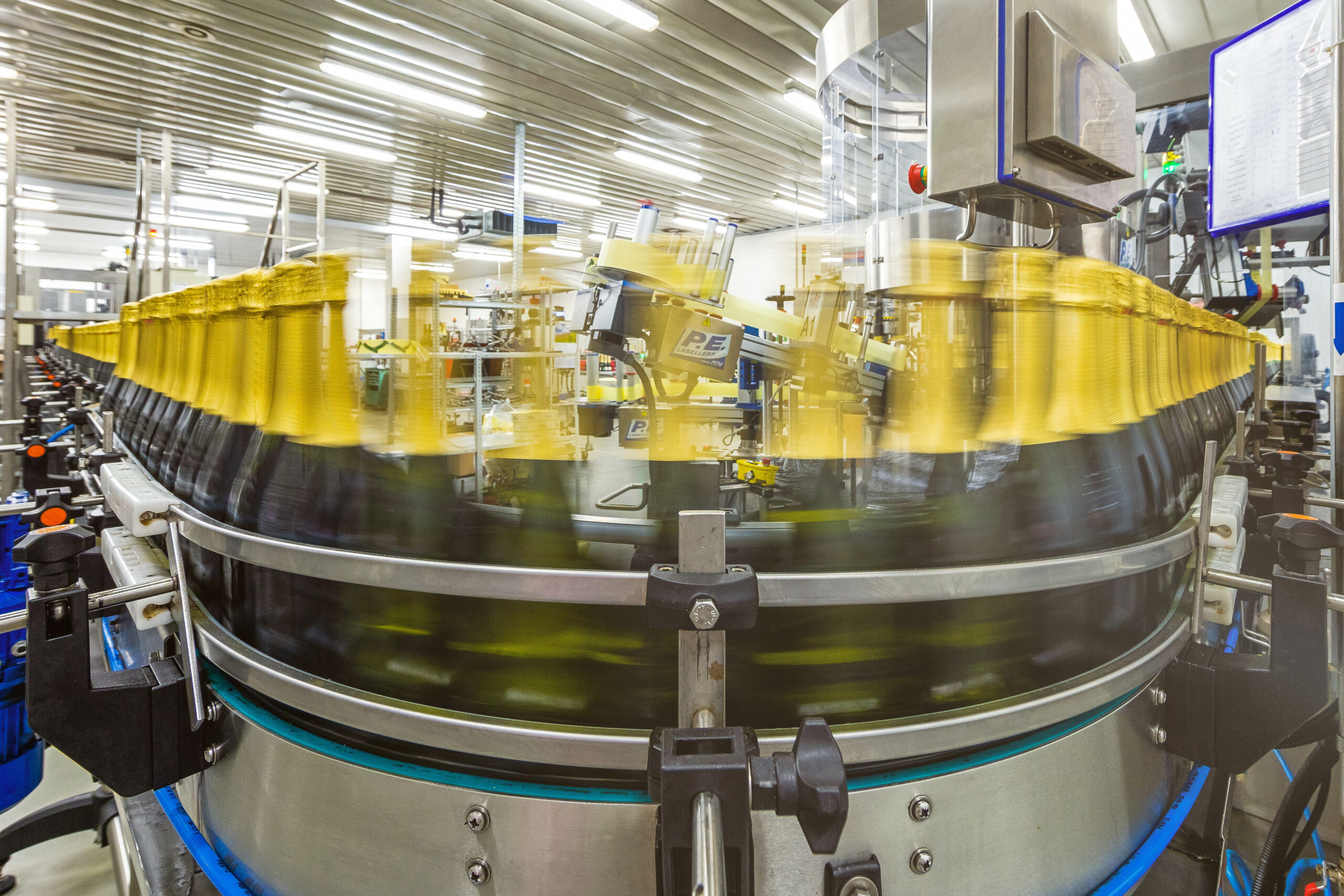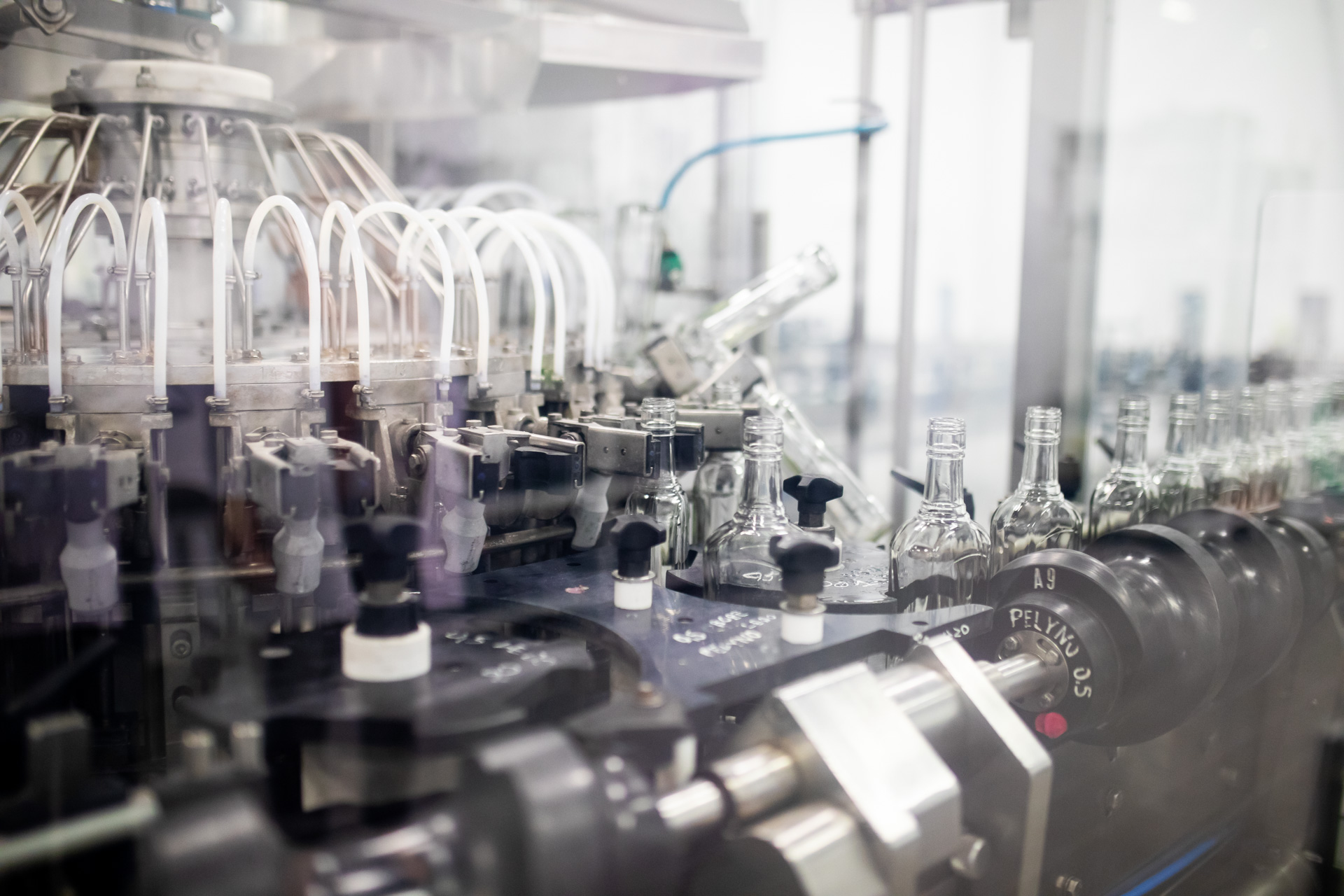
Progress requires change. But how to implement and manage change in a company that has been operating for 60 years? This is the challenge faced by the management team of the Alita beverage plant, which is actively and flexibly applying the principles of the Lean management methodology to successfully implement a unique production management system in the plant.
“You can’t implement a production management system in a day or a week. First and foremost, it has to be understood and supported by people. It is encouraging to see that the process is already underway and we are seeing the results of the changes: the plant has managed to reduce the number of breakdowns, increase efficiency and strengthen its ability to retain talented employees,” says Viktoras Mostovojus, Production Director of Alita, stressing that the Lithuanian company, which has been operating for many years, is applying the globally well-known LEAN methodology in an adaptive rather than blind way. After all, every organization is different and unique in terms of its culture, history, and contribution to the well-being of the city and the country.
Working together to find solutions
“Lean is a management philosophy that helps organizations improve productivity and work processes. Mostovoy points out that this involves not only the technical side but also the human side.
“No management system is a panacea, so don’t expect productivity to suddenly exceed all norms. But it can provide the tools to make more efficient use of available resources, engage employees, and help them create better working conditions,” says Mostovoy.
“Applying Lean principles in a factory means first and foremost standardizing processes and reviewing them regularly. Every day, the team systematically looks at how to achieve the same goals more efficiently, what problems are getting in the way – and solves them productively.
“This methodology is not only based on detailed monitoring of process data but also on communication between employees from different functions. By looking at the readings, administrative staff can identify the problem, but to find a solution they need to work together with production staff and understand the process. When production staff share their experience and manage their insights, an effective solution can be found,” says Alita’s Production Director.
Helping to improve conditions for employees and increase their engagement
“At Alita, as at all MV GROUP Production plants, one of our strategic goals is to increase employee engagement. Regular surveys show that we are moving in the right direction, with engagement levels rising consistently year on year.
V. According to Mostovoy, the Lean management philosophy also contributes to this, as its methods allow employees to unfold and highlight their strengths.
“Just like in the most advanced Lean factories in the world, at Alita we involve the whole team in process improvement activities, so everyone can both speak up about a perceived shortcoming and help find a solution. For example, solving the problem of how to increase the average filling rate per shift from 5,000 to 6,500 bottles per hour. When a person sees that they can make a difference and help solve problems, they are also more satisfied and engaged in their work,” the production manager believes.
“The management system in place at the Alita plant helps to improve working conditions for employees. As an example, Mostovoy cites the high-speed line, which requires more physical work. A consistent analysis of the processes has led to the introduction of innovations that make physical work easier, improving workplace ergonomics.
No more “we’ve been doing it for 20 years” excuse
Over the last couple of years, factory workers and their managers have worked together to find a range of solutions to make one job or another faster, easier, and more efficient. This is the purpose of the Lean methodology. One of the most striking results is a more productive bottling line. The solutions discovered and proposed by the employees have meant that the same amount of products is now poured in far fewer working hours.
“To achieve these results, we consistently and structurally review the process and ask – why are we doing it this way? You’d be surprised how many times the answer is simply that this is the way things are done, and it’s the way we’ve done it for 20 years. That is why we are developing a system that aims to help highlight such weaknesses and catch the details that you probably wouldn’t pay attention to in your daily activities,” says Mostovoy, who has been working with the new production management system at Alita since he started working there in 2021, based on the principles of Lean methodology.
When asked to imagine what the factory would look like if the current management system was suddenly abandoned, he has no doubt: in just a few weeks, productivity and efficiency would start to drop, downtime would become more frequent, and breakdowns would increase, turning into long-lasting problems.
“Information would not ‘go away’, which means that the real causes would not be found and the problems would not be eliminated. For example, one line has been blocked for years by the same error – irregular and erratic. Although the error was easy to solve, it kept recurring,” recalls Mostovoy, “We took a methodical approach: we raised one hypothesis after another, checked it, recorded the changes, and discovered that all we needed to do was to change certain wires. This saved a lot of human labor and avoided downtime.”
60 years of truth – people like to take pride in their work
According to the production manager, the changed approach to work organization gives the factory the tools to continuously increase its competitiveness both in the Lithuanian and international markets.
“When I talk to both newcomers and those who have been working here for decades, I notice that Alita’s success and leadership are becoming important criteria when choosing a workplace. We have a long tradition, but we are not stuck in stagnant water – we are constantly introducing innovations that surprise the market and actively expanding our partnerships globally, while also fostering links with the local community. It is no exaggeration to say that for many people, working at Alita is a matter of prestige, because our factory is ‘theirs’ and they are proud to work here,” says Mr Mostovoy.
This year, in celebration of its 60th anniversary, the organization awarded its long-serving employees: all those who have been with the plant for 25 years or more. And there are 60 of them – more than a quarter of all the colleagues working in Alytus plants today.
“The Alita plant is owned by MV GROUP Production, a Lithuanian capital company, which is committed to the progress of the plant and its active involvement in the life of the Dzūkija capital. One of the city’s oldest companies and the first sparkling wine producer in Lithuania celebrates its 60th anniversary this year. Having put Lithuania on the map of sparkling wines, brandies, alcoholic cocktails, and whiskey, Alita can be proud of the promotion of both Lithuanian brands and Alytus in the world.
